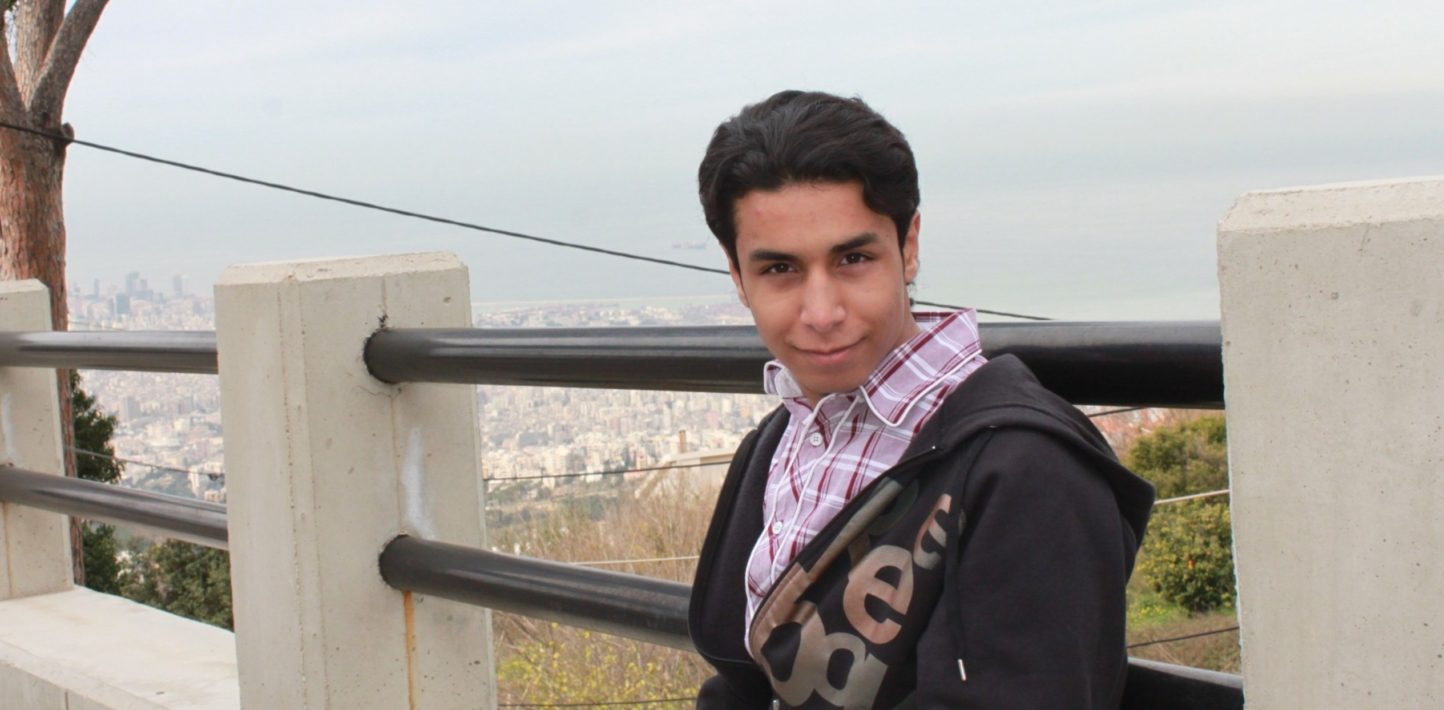Take action
Appeal to Saudi Arabia’s authorities to halt the execution of Ali al-Nimr
There are rising fears about the impending executions of Ali Mohammed Baqir al-Nimr and two other young Shi’a activists in Saudi Arabia who were arrested as juveniles after participating in anti-government rallies, Amnesty International said today after learning that they had been moved to solitary confinement.
The organization has been able to confirm that Ali al-Nimr, Dawood Hussein al-Marhoon and Abdullah Hasan al-Zaher were moved to solitary confinement in al-Ha’ir prison in Riyadh on 5 October. They were arrested at different times in 2012, when they were all under the age of 18, and sentenced to death in 2014. All three death sentences were upheld by Saudi Arabia’s appeal court and the Supreme Court earlier this year.
Pro-government media reports that Ali al-Nimr could face crucifixion after his beheading have sparked a global outcry. On 14 October, his mother appealed to US President Barack Obama to step in to save her son.
“The death penalty is a cruel, inhuman and degrading punishment and there is no convincing evidence that it is a particular deterrent against crime. Its use to punish someone for a crime they allegedly committed when they were under 18 years old is a flagrant violation of international law,” said Jeremy Lynch, Deputy Director of the Middle East and North Africa Programme at Amnesty International.
The death penalty is a cruel, inhuman and degrading punishment and … its use to punish someone for a crime they allegedly committed when they were under 18 years old is a flagrant violation of international law.
James Lynch, Deputy Director of the Middle East and North Africa Programme at Amnesty International
“The fact that all three state that they were tortured and denied access to a lawyer during their interrogations raises further grave concerns about the legal proceedings in their cases. It is abundantly clear that they have had nothing that resembles a fair trial.”
Ali al-Nimr was arrested in February 2012, when he was 17 years old, and held in a juvenile rehabilitation centre and then an adult prison. He was sentenced to death in May 2014 by the Specialized Criminal Court (SCC) in Jeddah, a security and counter-terrorism court, for 12 offences that included taking part in anti-government protests, attacking security forces, possessing a machine-gun and carrying out an armed robbery. Ali al-Nimr has said that his “confessions” were extracted under torture but the court has refused to order an investigation into his allegations.
Dawood Hussein al-Marhoon and Abdullah Hasan al-Zaher were arrested on 22 May and 3 March 2012, when they were aged 17 and 16 respectively. They were sentenced to death by the SCC in Riyadh in October 2014 on similar charges, which included taking part in anti-government protests, carrying out an armed robbery, and “participating in killing of police officers by making and using Molotov cocktails to attack them.” They too claimed to have been tortured and forced to “confess”.
“Saudi Arabia’s record when it comes to sentencing people to death after deeply flawed legal proceedings is utterly shameful. The death penalty is often arbitrarily applied after blatantly unfair trials,” said James Lynch.
It is absolutely outrageous that the court dismissed all three activists’ allegations of torture to make them ‘confess’ and simply sentenced them to death.
James Lynch
“This is compounded in this case by imposing death sentences on juvenile offenders, which is an egregious violation of international law. It is absolutely outrageous that the court dismissed all three activists’ allegations of torture to make them ‘confess’ and simply sentenced them to death.”
The UN Convention on the Rights of the Child, which is legally binding on Saudi Arabia, makes clear that no death sentences may be imposed for offences committed by individuals under the age of 18.
Saudi Arabia is one of the most prolific executioners in the world. The kingdom has executed 137 people so far this year, compared to 90 in the whole of 2014. Death sentences are often imposed after unfair trials, with juvenile offenders and people with mental disabilities not spared, Amnesty International documented in a recent report.
Ali al-Nimr is the nephew of Sheikh Nimr Baqir al-Nimr, a prominent Shi’a cleric from eastern Saudi Arabia who was sentenced to death in October 2014. Tensions between the Saudi Arabian authorities and the country’s Shi’a Muslim minority have increased since 2011 when, inspired in part by popular protests across the Middle East and North Africa, some citizens in the predominantly Shi’a Eastern Province stepped up calls for reforms.
Background
Since 2012, the Saudi Arabian authorities have been persecuting human rights defenders and dissidents with complete impunity, using both the courts and extrajudicial means such as the imposition of arbitrary travel bans. In February 2014, the authorities put into force a new counter-terror law that has since then been used against human rights defenders and activists to sentence them to long prison terms and even to death.
Most trials of these activists have taken place at the SCC, whose jurisdiction is vague and proceedings shrouded in secrecy.
In addition to the above Shi’a activists, the SCC had also sentenced human rights defender and lawyer Waleed Abu al-Khair under the new counter-terror law. It also recently sentenced Abdulrahman al-Hamed, one of the founding members of the independent human rights organizations, the Saudi Civil and Political Rights Association (ACPRA), to nine years in prison on 13 October.


